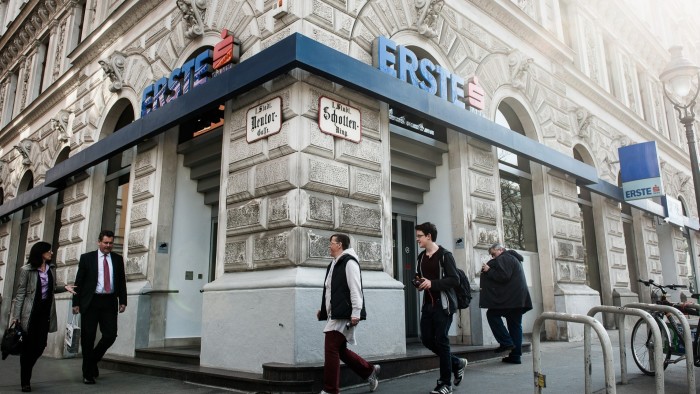On October 4 1819, Erste Austrian Savings Bank was signed into life with a deed written in a parsonage in Leopoldstadt — Vienna’s traditional workers and Jewish quarter.
Erste Group, as the bank is now known, is proud enough of what the deed said to quote from it to this day: “No age, no gender, no class, no nation is excluded from the advantages that the savings bank offers to every investee.”
And this year, Erste — one of the largest lenders in central and eastern Europe — has been placed second in the FT/Statista ranking of Europe’s diversity leaders in business.
“For me, personally, the strength of Erste lies in its diversity,” says bank chief executive Peter Bosek. “We have more than 80 different nationalities among our employees [and] more than 50 per cent of them are women,” he points out.
Nor, he says, are Erste’s efforts to foster a more diverse workforce a corporate gimmick or a recent fashion to try and gloss its public image.
“We’re not following a trend by being diverse and open minded. It’s something that is deeply rooted in our founding purpose.” He quotes the deed. “That powerful sentence is what we live up to and we deeply believe in.”
Erste employs 46,000, and has more than 2,000 branches in seven countries in Europe. Since listing in 1997 on the Vienna stock exchange, it has expanded aggressively. It also owns Česká Spořitelna, the largest bank in the Czech Republic, and Banca Comercială Română, the largest in Romania. In its annual results in October, Erste posted profits of €4.5bn, up 8 per cent, year on year. Deposits were up 3 per cent to stand at €240bn.
That expansion has not come at the cost of sacrificing the bank’s core culture and commitment, its management believes. Partly, that is thanks to the particularly politicised nature of the Austrian business world. Just as Raiffeisen Bank, Austria’s other major lender, has always had extremely close ties to the mainstream conservative Austrian People’s Party, Erste has long-standing ties to the Austrian Social Democrats.
It is, as one Austrian political consultant puts it “the house bank of the left”. As a result, it has held on to a social agenda in its business that is not always commercially driven. But Erste’s management is keen to stress that it is a business driven by the motivation to serve its shareholders, like any other bank.
It helps, though, that about a quarter of Erste’s shares are held by a linked network of co-operative institutions in Austria, the single largest of which is the Erste Bank Foundation: a non-profit that funds an array of charitable causes on the bank’s behalf.
“As a core shareholder of Erste Group, Erste Foundation secures the independent future of one of the largest financial services providers in central, eastern and south eastern Europe,” the foundation says.
It is an important part of helping to build the Erste brand, which puts diversity and a commitment to fair and social lending at the centre of its appeal to customers.
One initiative is the “Second Savings Bank”, funded by the foundation and established in 2006. This self-styled “bank of the hopeful” is an organisation run by 300 volunteers who are also employees of Erste Bank’s Austrian business. It aims to provide banking services to people in financial difficulties, who are often excluded from the regular banking system. Since its establishment, it has helped more than 26,000 people, it says.
The Erste foundation is also a funder of the Austrian arts.
Erste’s management believes such efforts ultimately serve a powerful business case, too: they make their bank the natural choice for millions of people from diverse backgrounds.
Erste’s current advertising strapline, “believe in your point”, aims to encourage clients to use its capital services while also subtly stressing the importance of pride.
The bank highlights three groups, in particular, that it is committed to helping: women; members of the LGBTQIA community; and those with disabilities.
Erste says it is committed to making clear its support for all three as publicly as it can, such as, for example, being one of the main financial backers of Vienna’s annual pride parade.
However, such efforts take place against an increasingly difficult political and social backdrop in the bank’s native Austria. In September, the far right Freedom Party won its largest ever electoral vote share, on a platform antithetical to many of the principles Erste claims it stands for.
Austria’s mainstream political parties are currently locked in difficult negotiations to try to keep the Freedom Party out of power. But, regardless of whether it ends up in government or not, the party and its growing support send a difficult message: close to one-third of Austrians voted for a party that is deeply hostile to LGBTQIA rights, and sceptical about the need to campaign, or legislate, for greater economic equality for women in the workplace.
Read the full article here

